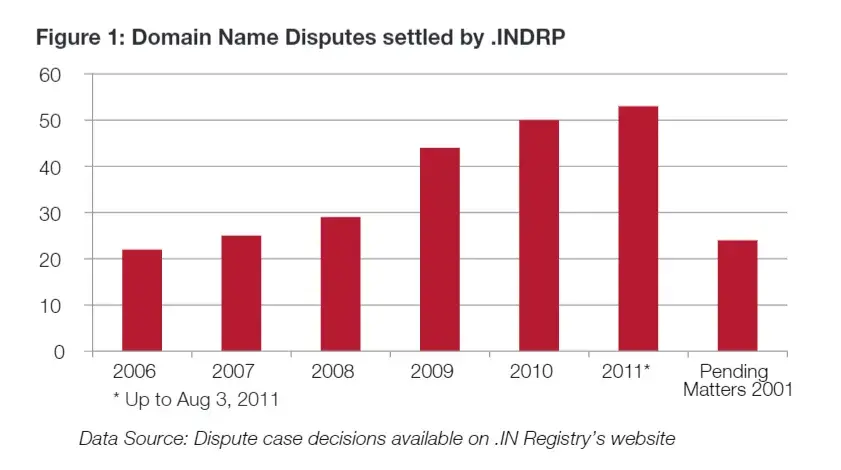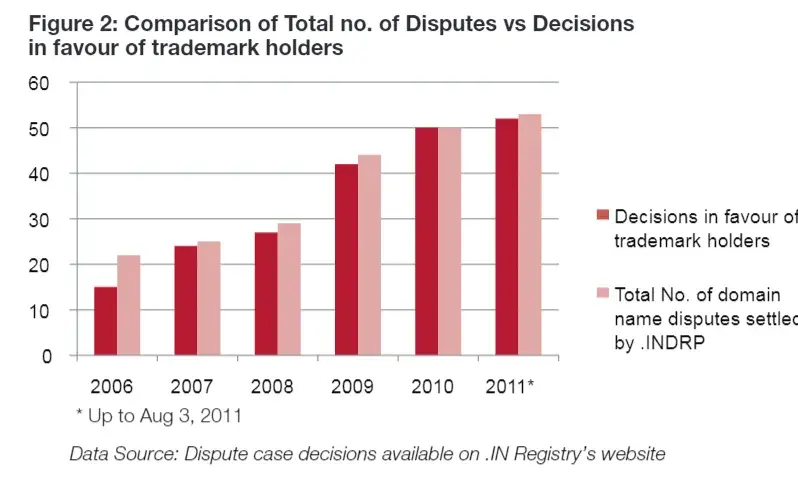With the inception, advent and rapid globalisation of the Internet, a revolutionary change has taken place in the field of communications. Lucy Rana and Rishu Srivastava look at domain name disputes.
The Internet has become a cornerstone of every establishment, whether commercial organisations, government bodies or institutions. It is used for banking, research, education and entertainment. The profound use of internet in e-commerce and e-communication has also raised concerns in the realm of intellectual property. Issues of cybersquatting and domain name hijacking have become bones of contention among companies which have invested significant amount of money and time in their marks only to realise that their names and trademarks have been taken up by e-pirates.
As far as proceedings for domain name disputes are concerned, there are jurisdictional difficulties, because the Internet is a global medium. A proceeding will have to be initiated in every country where a country code top level domain (ccTLD) is registered.
Analysis of .INDRP: the background
In response to these issues the .IN Dispute Resolution Policy (.INDRP) was formulated by the .IN Registry for the domain name dispute resolution in India. The .INDRP claims to be in line with internationally accepted guidelines and relevant provisions of the Indian Information Technology Act 2000. Under the National Internet Exchange of India (NIXI), the .IN Registry functions as an autonomous body with primary responsibility for maintaining the .IN ccTLD and ensuring its operational stability, reliability, and security.
Evaluation of the dispute resolution policy
Proceedings at the .INDRP can be initiated by any person who considers that the registered domain name conflicts with his legitimate rights or interests on the premise that
- the registrant’s domain name is identical or confusingly similar to a name, trademark or service mark in which he has rights; or
- the registrant has no rights or legitimate interests in respect of the domain name; and
- the registrant’s domain name has been registered or is being used in bad faith.
The registrant is required to submit to a mandatory arbitration proceeding if a complaint is filed.
The .IN Registry appoints an arbitrator to proceedings in accordance with the Arbitration & Conciliation Act 1996.
The arbitrator usually considers the domain name registered and used in bad faith in circumstances when:
- the registrant has acquired the domain name primarily for the purpose of selling, renting, or otherwise transferring the registration to the owner of the trademark or service mark, or to a competitor of the complainant, for valuable consideration in excess of the registrant’s documented out-of-pocket costs directly related to the domain name; or
- the registrant has registered the domain name in order to prevent the owner of the trademark or service mark from reflecting the mark in a corresponding domain name, provided that the registrant has engaged in a pattern of such conduct; or
- the registrant has intentionally attempted to attract Internet users to his website or other online location, by creating a likelihood of confusion with the complainant’s name or mark as to the source, sponsorship, affiliation, or endorsement of the registrant’s website or of a product or service on the registrant’s website.

Registrant’s rights
The registrant can demonstrate rights to or legitimate interests in the domain name by establishing that:
- his use of, or demonstrable preparations to use, the domain name or a name corresponding to the domain name is in connection with a bona fide offering of goods or services;
- he (as an individual, business, or other organisation) has been commonly known by the domain name, even if he has acquired no trademark or service mark rights; or
- he is making a legitimate non-commercial or fair use of the domain name, without intent for commercial gain to misleadingly divert consumers or to tarnish the trademark or service mark at issue.

Registrar’s involvement in dispute resolution
It is interesting to note that the .IN Registry and the registrars are not allowed to participate in the domain name dispute resolution proceedings in any capacity other than providing the information relevant to the registration and use of the domain name upon the request of the arbitrator. The registry and the registrar are not liable for any decisions rendered by an arbitrator.
The remedies available to the complainant include the cancellation of the registrant’s domain name or the transfer of domain name registration to the complainant. Costs, if deemed fit, may also be awarded by the arbitrator.
The registrant is prohibited from transferring the domain name registration to another holder after an arbitration proceeding is initiated for a period of 15 working days after it is concluded or during a pending court proceeding or arbitration commenced regarding the domain name, unless the party to whom the domain name registration is being transferred agrees, in writing, to be bound by the decision of the court or arbitrator.
Conclusion and suggestions
It is a fact that .INDRP serves an important and crucial role to resolve domain name disputes in out-of-court proceedings. A key advantage of the .INDRP procedure is the mandatory implementation of the resulting decisions. The process is quite transparent as the .IN Registry posts all disputed domain names, case status, case statistics and full text of decisions on its website. The process is fair and effective and trademark owners have prevailed in majority of the decisions. Some of the domain names that have been transferred following .INDRP referrals are www.pizzahut.in, www.gmail.co.in, www.nescafe.co.in, and www.starbucks.co.in.
Balancing the Odds An evaluation of the .IN domain name dispute resolution policy(INDRP) in India
Related Link:
https://www.linkedin.com/pulse/balancing-odds-evaluation-domain-name-dispute-resolution-lucy-rana

